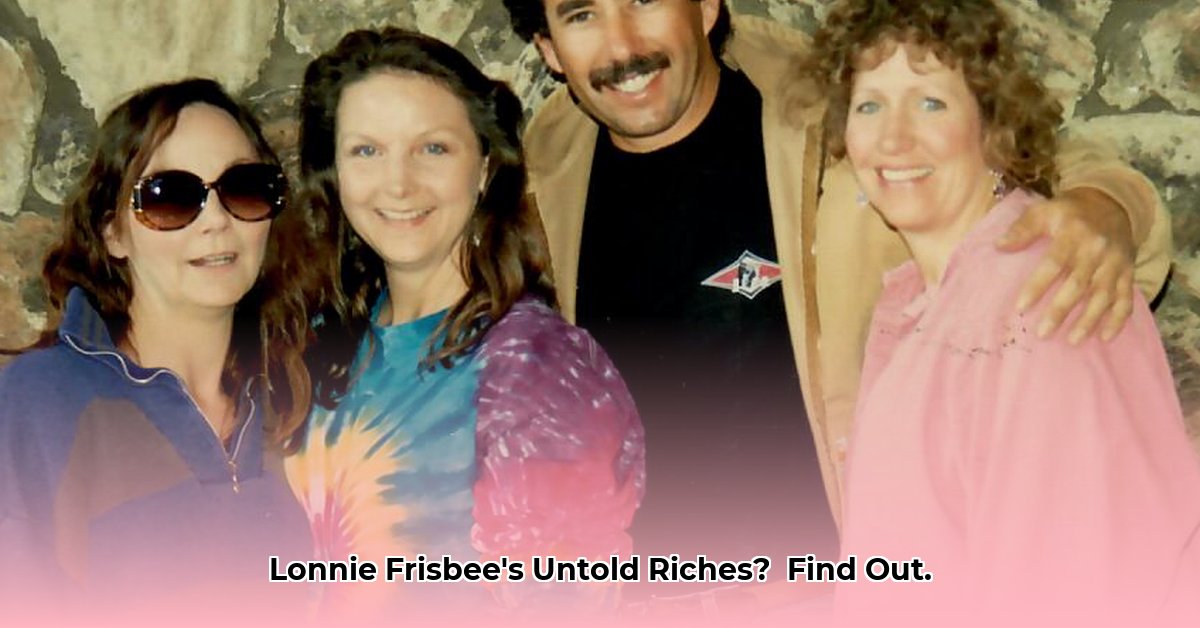
Let's be upfront: pinning down Lonnie Frisbee's net worth is likely a futile exercise. His financial legacy pales in comparison to his profound impact on the Jesus Movement. This isn't a story about bank accounts; it's a narrative of a complex, influential figure whose life intertwined with the tumultuous counterculture of the 1960s and 70s. This article explores his journey, from a troubled youth to a charismatic preacher who shaped the landscape of contemporary Christianity.
From Counterculture Rebel to Charismatic Preacher: Lonnie Frisbee's Early Years
Lonnie Frisbee's life unfolded against the backdrop of the 1960s – a decade of social upheaval and profound change. His early years were marked by rebellion and exploration of the occult, alongside accounts suggesting a difficult childhood. These experiences, while shrouded in some mystery, ultimately shaped his later spiritual transformation. His conversion to Christianity wasn't a passive shift; it was a radical metamorphosis that resonated with the spirit of a generation seeking authenticity. How did this rebellious youth become a pivotal figure in the Jesus Movement? The answer lies in his unique connection to those seeking spiritual solace.
The Hippie Preacher and the Explosive Growth of the Jesus Movement
Frisbee's ministry was unconventional. He eschewed traditional religious formality, connecting with young people on a deeply personal level. He spoke their language, understood their struggles, and offered a message of grace and acceptance. His preaching style – captivating, raw, and intensely personal – resonated deeply with a generation disillusioned with mainstream society and religion. He played a crucial role in the growth of both Calvary Chapel and the Vineyard Movement, attracting thousands to Christianity. Accounts suggest that the Shiloh Youth Revival Centers where he served experienced explosive growth, perhaps reaching as many as 100,000 people across 175 locations. However, precise figures are elusive and require further verification. What fueled this rapid expansion? His ability to connect with a generation searching for spiritual meaning.
Theological Divergences and Personal Struggles: A Life of Contradictions
Frisbee's life wasn't without internal conflict. His theological views diverged from mainstream evangelicalism, leading to tensions with key figures like Chuck Smith of Calvary Chapel. Perhaps the most significant challenge stemmed from the dissonance between his personal life – his homosexuality – and the doctrines of the churches he helped build. This internal struggle forms a poignant chapter in his life story, highlighting the complexities of faith, personal identity, and the rigid structures of religious institutions. How could a man so influential within the evangelical movement find himself at odds with its core tenets? His story highlights the inherent tension between personal truth and societal expectations.
A Lasting Legacy Despite Controversy: Lonnie Frisbee's Enduring Influence
Frisbee's later years were marked by continuous challenges, culminating in his excommunication from Calvary Chapel. This didn't erase his impact, however. He remains a significant figure within the Jesus Movement, a testament to his ability to challenge norms and inspire a generation. His legacy is complex and multifaceted, demanding a nuanced understanding of his contributions and struggles. What is the enduring relevance of his life and ministry? He continues to inspire conversations about faith, identity, and the ever-evolving nature of belief.
Understanding Lonnie Frisbee's Enduring Legacy
The pursuit of Lonnie Frisbee's net worth distracts from the true measure of his life. His story is a compelling narrative of transformation, spiritual influence, and profound personal struggle. It underscores that true wealth extends far beyond financial accumulation. His impact resonates even today, prompting reflection on faith, identity, and the evolving definitions of acceptance and tolerance within religious communities. His legacy remains a complex and compelling case study in the intersection of faith, personal experience, and the challenges of maintaining authenticity within established structures.